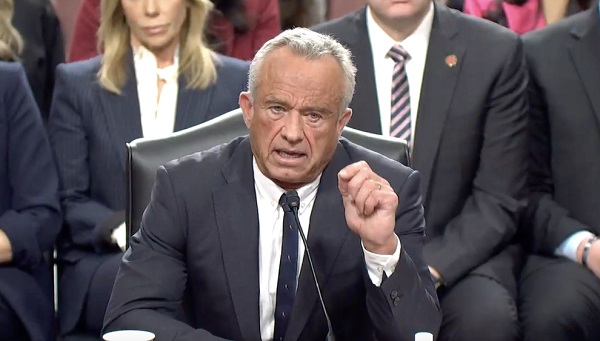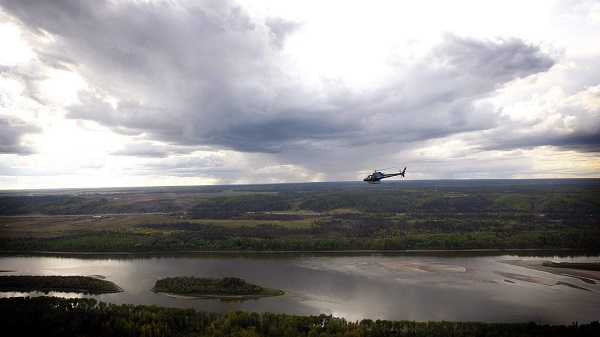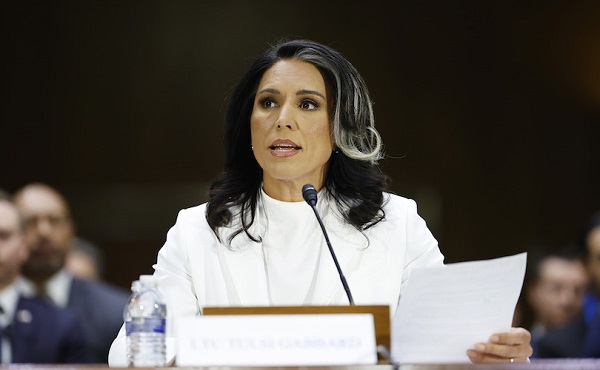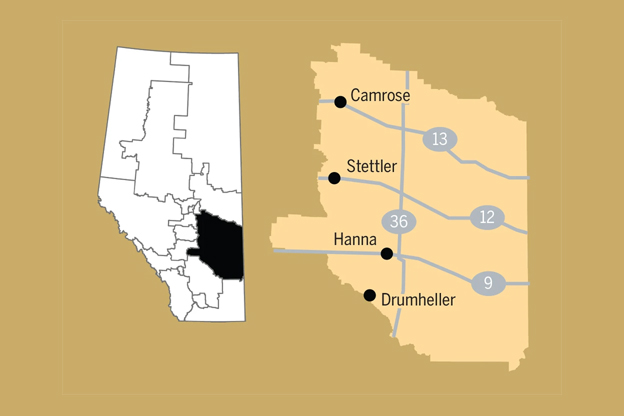Uncategorized
Accuser blasts pope silence, ‘slander’ over coverup claims
VATICAN CITY — The former Vatican ambassador who accused three popes and their advisers of covering up for a disgraced American ex-cardinal has challenged the Vatican to say what it knows about the scandal and accused Pope Francis of mounting a campaign of “subtle slander” against him.
Archbishop Carlo Maria Vigano penned a new missive a month after his initial 11-page document sent shockwaves through the Catholic Church. It was uploaded to a document-sharing site late Thursday.
Vigano denounced the official Vatican silence about his claims and urged the current head of the Vatican bishops’ office to speak out, saying he has all the documentation needed to prove years of
“How can one avoid concluding that the reason they do not provide the documentation is that they know it confirms my testimony?” Vigano wrote. “The pope’s unwillingness to respond to my charges and his deafness to the appeals by the faithful for accountability are hardly consistent with his calls for transparency and bridge building.”
Vigano threw Francis’ papacy into turmoil last month when he accused Francis of rehabilitating McCarrick from sanctions imposed by Pope Benedict XVI. He accused more than two dozen current and former Vatican officials, as well as a host of U.S. bishops and papal advisers, of being part of the
Francis removed McCarrick as a cardinal in July after a U.S. church investigation determined an allegation he fondled a teenage altar boy in the 1970s was credible. After news broke of the investigation, several former seminarians and priests came forward to report that they, too, had been abused or harassed by McCarrick as adults.
The scandal has led to a crisis in confidence in both the U.S. and Vatican hierarchy, since McCarrick’s penchant for seminarians was apparently an open secret in some U.S. and Vatican church circles.
The archdiocese of Washington announced Friday that McCarrick, 88, now lives at a Capuchin friary in Victoria, Kansas, ending months of mystery about his whereabouts.
In his first denunciation, published Aug. 26, Vigano initially claimed Benedict had imposed sanctions against McCarrick prohibiting him from exercising public ministry, travelling or lecturing on behalf of the church. He has modified his account, however, since the public record is rife with evidence McCarrick lived his ministry free from any real constraints, and it is unclear what type of sanctions were ever imposed.
But the crux of Vigano’s claim was that he told Francis of the sanctions against McCarrick on June 23, 2013, and that the pope effectively rehabilitated McCarrick and made him a trusted adviser.
Francis has refused to directly respond to Vigano’s claims, though the Vatican is expected to release some “clarifications” soon.
Francis has, however, referred to the issue indirectly in his morning homilies, speaking of the silence of Jesus before the “Great Accuser” — seemingly comparing his own silence to that of Christ and Vigano’s accusations to the work of Satan.
Rather than directly responding, Vigano complained, Francis “put in place a subtle slander against me — slander being an
Francis refused to take questions about the Vigano accusations during his in-flight news conference returning from the Baltics on Tuesday.
Even though it was released Thursday, Vigano’s new document was dated Friday, Sept. 29, the feast of St. Michael, Archangel. It wasn’t a coincidence.
St. Michael is considered the protector of the church, the leader of all angels who battled evil and drove it from the church. Vigano has cast himself as the church’s protector who at great personal risk dared to break two decades of “omerta” or silence.
He acknowledged that by doing so he violated the pontifical secret — the rule of confidentiality that governs much of the inner workings of the Catholic Church.
“Certainly, some of the facts that I was to reveal were covered by the pontifical secret that I had promised to observe and that I had faithfully observed from the beginning of my service to the Holy See,” Vigano wrote. “But the purpose of any secret, including the pontifical secret, is to protect the church from her enemies, not to cover up and become complicit in crimes committed by some of her members.”
Nicole Winfield, The Associated Press
Uncategorized
Poilievre on 2025 Election Interference – Carney sill hasn’t fired Liberal MP in Chinese election interference scandal

From Conservative Party Communications
“Yes. He must be disqualified. I find it incredible that Mark Carney would allow someone to run for his party that called for a Canadian citizen to be handed over to a foreign government on a bounty, a foreign government that would almost certainly execute that Canadian citizen.
“Think about that for a second. We have a Liberal MP saying that a Canadian citizen should be handed over to a foreign dictatorship to get a bounty so that that citizen could be murdered. And Mark Carney says he should stay on as a candidate. What does that say about whether Mark Carney would protect Canadians?
“Mark Carney is deeply conflicted. Just in November, he went to Beijing and secured a quarter-billion-dollar loan for his company from a state-owned Chinese bank. He’s deeply compromised, and he will never stand up for Canada against any foreign regime. It is another reason why Mr. Carney must show us all his assets, all the money he owes, all the money that his companies owe to foreign hostile regimes. And this story might not be entirely the story of the bounty, and a Liberal MP calling for a Canadian to be handed over for execution to a foreign government might not be something that the everyday Canadian can relate to because it’s so outrageous. But I ask you this, if Mark Carney would allow his Liberal MP to make a comment like this, when would he ever protect Canada or Canadians against foreign hostility?
“He has never put Canada first, and that’s why we cannot have a fourth Liberal term. After the Lost Liberal Decade, our country is a playground for foreign interference. Our economy is weaker than ever before. Our people more divided. We need a change to put Canada first with a new government that will stand up for the security and economy of our citizens and take back control of our destiny. Let’s bring it home.”
Uncategorized
Canada Needs A Real Plan To Compete Globally

From the Frontier Centre for Public Policy
Ottawa’s ideological policies have left Canada vulnerable. Strategic action is needed now
As Canada navigates an increasingly complex geopolitical landscape, the next federal government must move beyond reflexive anti—Americanism regardless of its political leanings. Instead, Canada should prioritize national interests while avoiding unnecessary conflict and subservience.
The notion that Canada can stand alone is as misguided as the idea that it is only an economic appendage of the United States. Both perspectives have influenced policy in Ottawa at different times, leading to mistakes.
Rather than engaging in futile name-calling or trade disputes, Canada must take strategic steps to reinforce its autonomy. This approach requires a pragmatic view rooted in Realpolitik—recognizing global realities, mitigating risks, governing for the whole country, and seizing opportunities while abandoning failed ideologies.
However, if Washington continues to pursue protectionist measures, Canada must find effective ways to counteract the weakened position Ottawa has placed the country in over the past decade.
One key strategy is diversifying trade relationships, notably by expanding economic ties with emerging markets such as India and Southeast Asia. This will require repairing Canada’s strained relationship with India and regaining political respect in China.
Unlike past Liberal trade missions, which often prioritized ideological talking points over substance, Canada must negotiate deals that protect domestic industries rather than turning summits into platforms for moral posturing.
A more effective approach would be strengthening partnerships with countries that value Canadian resources instead of vilifying them under misguided environmental policies. Expand LNG exports to Europe and Asia and leverage Canada’s critical minerals sector to establish reciprocal supply chains with non-Western economies, reducing economic reliance on the U.S.
Decades of complacency have left Canada vulnerable to American influence over its resource sector. Foreign-funded environmental groups have weakened domestic energy production, handing U.S. industries a strategic advantage. Ottawa must counter this by ensuring Canadian energy is developed at home rather than allowing suppressed domestic production to benefit foreign competitors.
Likewise, a robust industrial policy—prioritizing mining, manufacturing, and agricultural resilience—could reduce dependence on U.S. and Chinese imports. This does not mean adopting European-style subsidies but rather eliminating excessive regulations that make Canadian businesses uncompetitive, including costly domestic carbon tariffs.
Another key vulnerability is Canada’s growing military dependence on the U.S. through NORAD and NATO. While alliances are essential, decades of underfunding and neglect have turned the Canadian Armed Forces into little more than a symbolic force. Canada must learn self-reliance and commit to serious investment in defence.
Increasing defence spending—not to meet NATO targets but to build deterrence—is essential. Ottawa must reform its outdated procurement processes and develop a domestic defence manufacturing base, reducing reliance on foreign arms deals.
Canada’s vast Arctic is also at risk. Without continued investment in northern sovereignty, Ottawa may find itself locked out of its own backyard by more assertive global powers.
For too long, Canada has relied on an economic model that prioritizes federal redistribution over wealth creation and productivity. A competitive tax regime—one that attracts investment instead of punishing success—is essential.
A capital gains tax hike might satisfy activists in Toronto, but it does little to attract investments and encourage economic growth. Likewise, Ottawa must abandon ideological green policies that threaten agri-food production, whether by overregulating farmers or ranchers. At the same time, it must address inefficiencies in supply management once and for all. Canada must be able to feed a growing world without unnecessary bureaucratic obstacles.
Ottawa must also create an environment where businesses can innovate and grow without excessive regulatory burdens. This includes eliminating interprovincial trade barriers that stifle commerce.
Similarly, Canada’s tech sector, long hindered by predatory regulations, should be freed from excessive government interference. Instead of suffocating innovation with compliance mandates, Ottawa should focus on deregulation while implementing stronger security measures for foreign tech firms operating in Canada.
Perhaps Ottawa’s greatest mistake is its knee-jerk reactions to American policies, made without a coherent long-term strategy. Performative trade disputes with Washington and symbolic grandstanding in multilateral organizations do little to advance Canada’s interests.
Instead of reacting emotionally, Canada must take proactive steps to secure its economic, resource, and defence future. That is the role of a responsible government.
History’s best strategists understood that one should never fight an opponent’s war but instead dictate the terms of engagement. Canada’s future does not depend on reacting to Washington’s policies—these are calculated strategies, not whims. Instead, Canada’s success will be determined by its ability to act in the interests of citizens in all regions of the country, and seeing the world as it is rather than how ideological narratives wish it to be.
Marco Navarro-Génie is the vice president of research at the Frontier Centre for Public Policy. With Barry Cooper, he is co-author of Canada’s COVID: The Story of a Pandemic Moral Panic (2023).
-

 COVID-192 days ago
COVID-192 days agoStudy finds nearly half of ‘COVID deaths’ had no link to virus
-

 Alberta2 days ago
Alberta2 days agoCharges laid in record cocaine seizure
-

 2025 Federal Election1 day ago
2025 Federal Election1 day agoCarney says Liberals won’t make voting pact with NDP
-

 Autism1 day ago
Autism1 day agoNIH, CMS partner on autism research
-

 Alberta2 days ago
Alberta2 days agoEnergy projects occupy less than three per cent of Alberta’s oil sands region, report says
-

 Energy2 days ago
Energy2 days agoOil tankers in Vancouver are loading plenty, but they can load even more
-

 Business1 day ago
Business1 day agoInnovative Solutions Like This Plan To Provide Power For Data Centres Will Drive Natural Gas Demand For Decades
-

 Energy2 days ago
Energy2 days agoCarney’s energy superpower rhetoric falls flat without policy certainty





